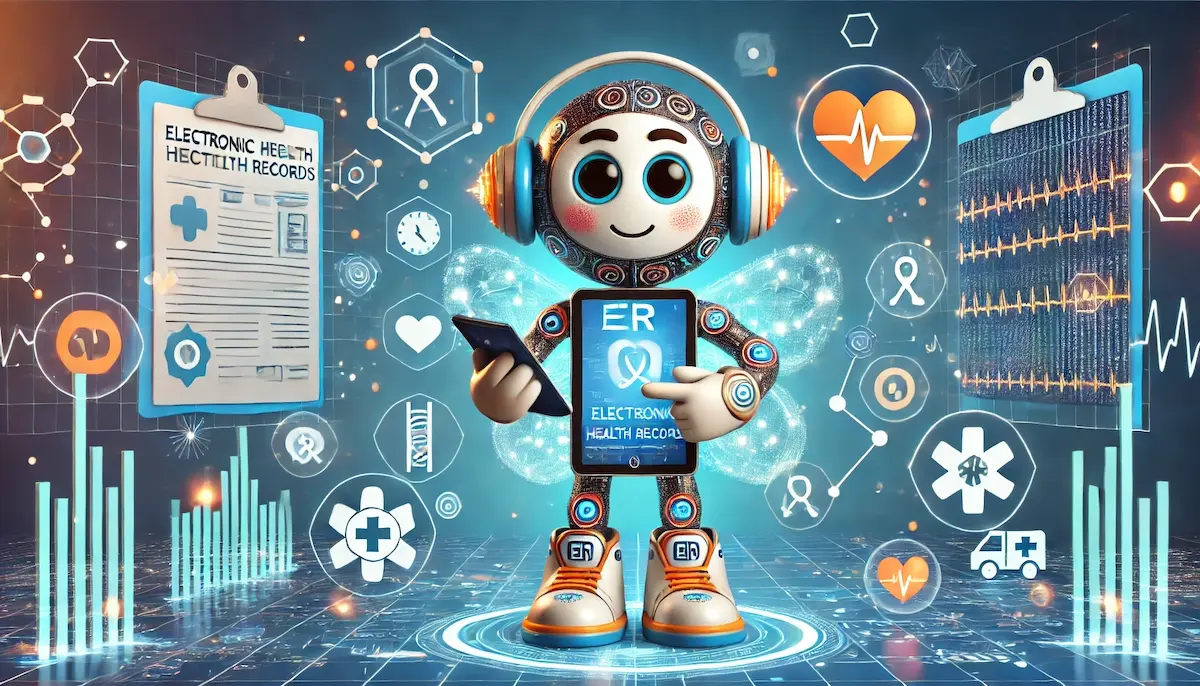Electronic Health Records (EHR) represent a significant advancement in the way healthcare data is collected, managed, and utilized. EHR systems have transformed healthcare by providing comprehensive, real-time access to patient information, improving the quality of care and operational efficiency. This article explores what EHRs are, their key features, applications, benefits, and future trends.
What are Electronic Health Records (EHR)?
Electronic Health Records (EHR) are digital versions of patients’ paper charts. They contain comprehensive health information about patients, including medical history, diagnoses, medications, treatment plans, immunization dates, allergies, radiology images, and laboratory test results. EHR systems are designed to be accessed by authorized healthcare providers across different healthcare settings, facilitating coordinated and efficient care.
Key Features of EHR Systems
EHR systems encompass several key features that enable comprehensive management of patient health information:
1. Comprehensive Data Collection
EHRs store a wide range of patient information, including:
- Personal demographics
- Medical history
- Medication and allergy lists
- Immunization status
- Laboratory and test results
- Radiology images
- Treatment plans and progress notes
2. Interoperability
EHR systems are designed to be interoperable, allowing the secure exchange of health information between different healthcare providers and systems. This ensures that patient data is accessible wherever and whenever it is needed.
3. Decision Support
EHR systems often include clinical decision support tools that help healthcare providers make informed decisions. These tools can provide reminders for preventive care, alert clinicians to potential drug interactions, and suggest evidence-based guidelines for treatment.
4. Patient Portals
Many EHR systems offer patient portals, which allow patients to access their health information, schedule appointments, request prescription refills, and communicate with their healthcare providers online.
5. Electronic Prescribing (e-Prescribing)
EHRs facilitate electronic prescribing, allowing healthcare providers to send prescriptions directly to pharmacies. This reduces errors associated with handwritten prescriptions and streamlines the medication dispensing process.
6. Data Analytics and Reporting
EHR systems include tools for data analytics and reporting, enabling healthcare providers to analyze patient data, track outcomes, and generate reports for quality improvement and regulatory compliance.
7. Security and Privacy
EHR systems incorporate robust security measures to protect patient information, including encryption, access controls, and audit trails. They comply with regulations such as the Health Insurance Portability and Accountability Act (HIPAA) to ensure the privacy and confidentiality of health data.
Applications of EHR Systems
EHR systems have a wide range of applications across various aspects of healthcare:
1. Patient Care
EHRs improve patient care by providing healthcare providers with comprehensive and up-to-date information about their patients. This enables more accurate diagnoses, personalized treatment plans, and better management of chronic conditions.
2. Coordination of Care
EHRs facilitate better coordination of care among different healthcare providers. By sharing patient information, specialists, primary care physicians, and other healthcare professionals can collaborate more effectively, reducing redundant tests and procedures.
3. Public Health
EHR data can be used for public health surveillance and research. By analyzing aggregated health data, public health officials can monitor disease outbreaks, track vaccination rates, and identify health trends.
4. Clinical Research
EHR systems provide a valuable source of data for clinical research. Researchers can use EHR data to study disease patterns, evaluate treatment outcomes, and develop new medical interventions.
5. Administrative Efficiency
EHRs streamline administrative processes such as billing, coding, and claims processing. This reduces paperwork, minimizes errors, and improves the overall efficiency of healthcare operations.
Benefits of EHR Systems
Implementing EHR systems offers numerous benefits for patients, healthcare providers, and the healthcare system as a whole:
1. Improved Quality of Care
EHRs enhance the quality of care by providing comprehensive and accurate patient information, enabling better clinical decision-making and reducing the risk of medical errors.
2. Enhanced Patient Safety
By providing access to complete and accurate patient records, EHRs help prevent adverse drug interactions, ensure proper follow-up care, and reduce the risk of duplicate tests and procedures.
3. Increased Efficiency
EHR systems streamline clinical and administrative processes, reducing the time and effort required for tasks such as documentation, billing, and reporting. This allows healthcare providers to focus more on patient care.
4. Better Patient Engagement
Patient portals and other EHR features empower patients to take an active role in their healthcare. Patients can access their health information, communicate with their providers, and manage their appointments and medications.
5. Cost Savings
EHRs can lead to cost savings by reducing paperwork, minimizing duplication of tests and procedures, and improving the efficiency of billing and claims processing.
The Future of EHR Systems
The future of EHR systems is promising, with several trends and advancements shaping their evolution:
1. Integration with Artificial Intelligence
Artificial intelligence (AI) and machine learning will enhance EHR systems by providing predictive analytics, decision support, and personalized treatment recommendations.
2. Improved Interoperability
Efforts to improve interoperability will continue, enabling seamless data exchange between different EHR systems and healthcare providers. This will enhance care coordination and reduce information silos.
3. Advanced Data Analytics
Advanced data analytics tools will enable healthcare providers to gain deeper insights from EHR data, improving patient outcomes and supporting population health management.
4. Patient-Centered Care
EHR systems will increasingly focus on patient-centered care, with features that enhance patient engagement, support shared decision-making, and promote personalized medicine.
5. Enhanced Security and Privacy
As cyber threats continue to evolve, EHR systems will incorporate more advanced security measures to protect patient information and ensure compliance with privacy regulations.
Electronic Health Records (EHR) are revolutionizing healthcare by providing comprehensive, real-time access to patient information. As technology advances, EHR systems will continue to enhance the quality of care, improve operational efficiency, and empower patients to take an active role in their healthcare.
Blockfine thanks you for reading and hopes you found this article helpful.
